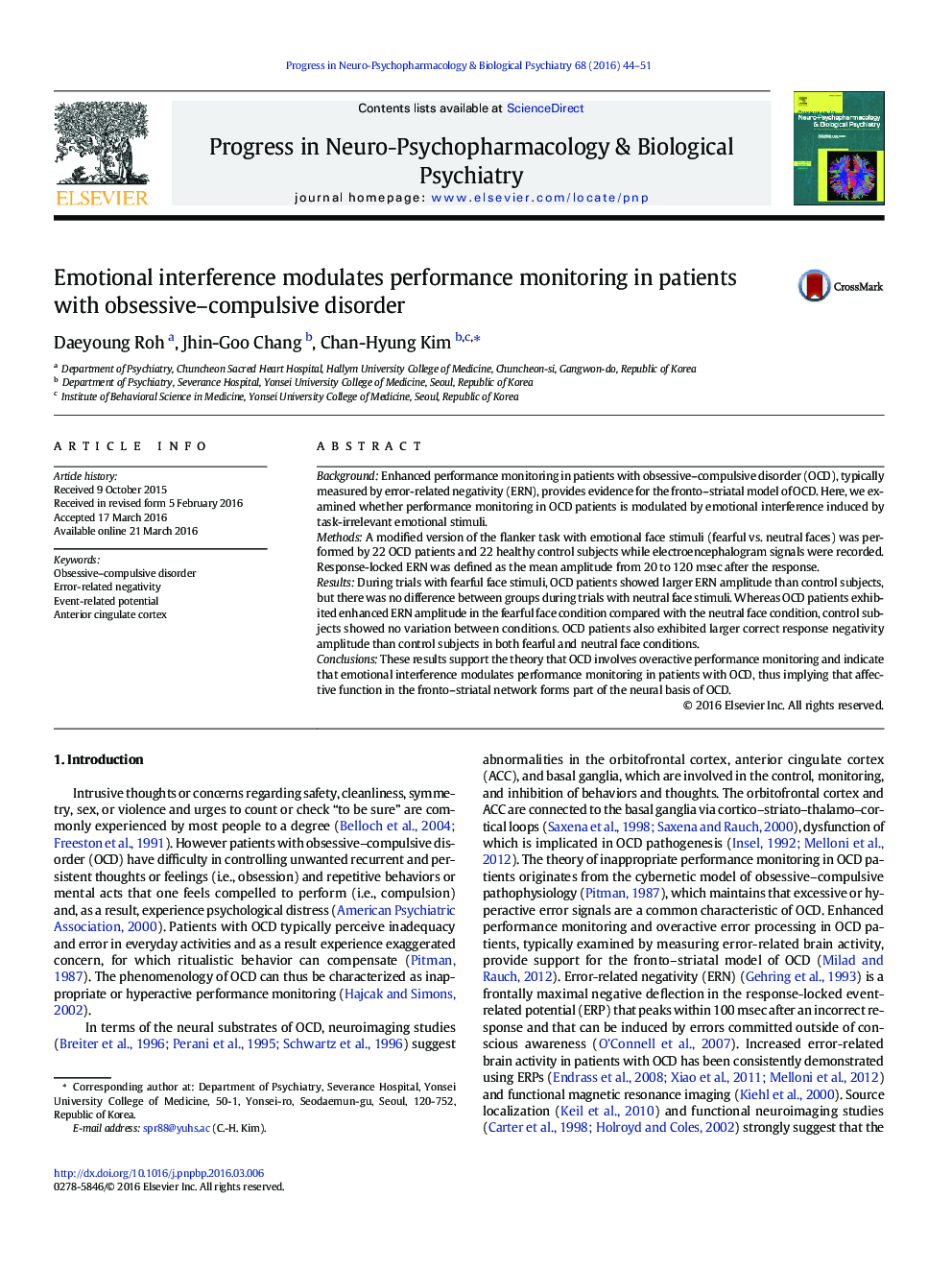| Article ID | Journal | Published Year | Pages | File Type |
|---|---|---|---|---|
| 2564714 | Progress in Neuro-Psychopharmacology and Biological Psychiatry | 2016 | 8 Pages |
•We examined the psychophysiological indicators of performance monitoring in OCD.•OCD patients show larger ERN during trials with fearful face stimuli than controls.•Emotional interference influences performance monitoring in patients with OCD.
BackgroundEnhanced performance monitoring in patients with obsessive–compulsive disorder (OCD), typically measured by error-related negativity (ERN), provides evidence for the fronto–striatal model of OCD. Here, we examined whether performance monitoring in OCD patients is modulated by emotional interference induced by task-irrelevant emotional stimuli.MethodsA modified version of the flanker task with emotional face stimuli (fearful vs. neutral faces) was performed by 22 OCD patients and 22 healthy control subjects while electroencephalogram signals were recorded. Response-locked ERN was defined as the mean amplitude from 20 to 120 msec after the response.ResultsDuring trials with fearful face stimuli, OCD patients showed larger ERN amplitude than control subjects, but there was no difference between groups during trials with neutral face stimuli. Whereas OCD patients exhibited enhanced ERN amplitude in the fearful face condition compared with the neutral face condition, control subjects showed no variation between conditions. OCD patients also exhibited larger correct response negativity amplitude than control subjects in both fearful and neutral face conditions.ConclusionsThese results support the theory that OCD involves overactive performance monitoring and indicate that emotional interference modulates performance monitoring in patients with OCD, thus implying that affective function in the fronto–striatal network forms part of the neural basis of OCD.
